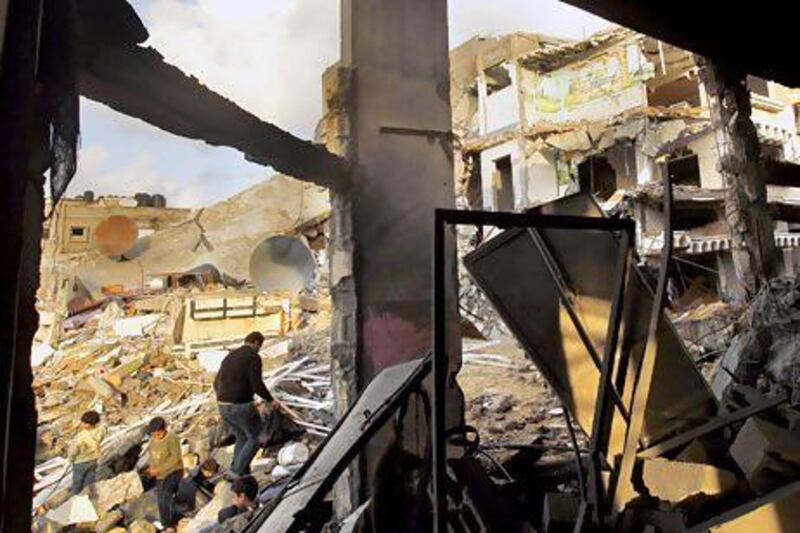Overseas political tensions are expected to dominate the attention of market-watchers this week, whether the biggest factor is renewed protests in Egypt or efforts to avert the "fiscal cliff" in the United States.
Markets sank in the past week as Israel's conflict with Hamas weighed on most regional exchanges.
The Dubai Financial Market General Index fell for the fifth consecutive week, dropping 1.2 per cent to 1,596.54, while the Abu Dhabi Securities Exchange General Index fell 1.8 per cent to 2,642.42, snapping four weeks of gains.
However, headwinds are expected to ease in the week ahead as global investors become less concerned about the potential market impacts of US political wrangling expected during the coming weeks, said Rami Sidani, the head of Middle East and North Africa portfolio management at Schroders.
"We're seeing better sentiment prevailing on the global scene. This has been mostly [after] some positive announcement on the fiscal cliff in the US," he said. "It seems that both the Republicans and Democrats will be reaching an agreement on this, given the magnitude of the issue."
The fiscal cliff is a mix of automatic tax increases and spending cuts that will take effect at the start of next year if policymakers cannot reach a follow-up deal to last year's national debt agreement.
The cumulative effect of the planned cuts and taxes could result in the world's largest economy falling back into recession early next year, according to the IMF.
Meanwhile, easing political tensions in the Middle East should mean that another major worry for local investors cedes from view.
"The escalation of the conflict between Israel and Palestine has been weighing on our market," said Mr Sidani. Wednesday's ceasefire announcement would help to alleviate pressure on Middle Eastern equities, he added.
In Egypt, markets leapt after Tuesday's announcement that the IMF had reached an agreement to provide US$4.8 billion in funding to the country's cash-strapped government. The nation's EGX30 index gained 1.3 per cent on Wednesday following the news.
"The release of funds will bring relief in terms of Egypt's fiscal and current-account deficits and pave the way for the disbursement of further multilateral aid," analysts from HSBC wrote in a report following the IMF's announcement. "Perhaps equally important, though, it also suggests that the IMF has confidence in Egypt's policymakers, in spite of the continued absence of a constitution, parliament or permanent government."
However, the stock market gains were reversed after the Egyptian president Mohammed Morsi issued a decree consolidating his powers, which opponents said gave him near-dictatorial control of the country.
Opposition groups called a protest for Tuesday.
Better-than-expected data from the US, including consumer confidence indicators and purchasing manager's index data, helped contribute to a higher close on Friday for US equities. The S&P500 gained 1.3 per cent, bringing the index to a three-week high.
The Stoxx 600 index of European equities also had a good week, gaining 3.9 per cent despite growing signs of gridlock over the European Union's budget for 2014 through 2020, which culminated in an impasse in Brussels on Friday.
Catalonia, Spain's wealthiest region, is also due to hold parliamentary elections today that could result in a strengthened position for separatist parties.
Yesterday, the Saudi Tadawul All-Share Index rose 0.84 per cent at 6,665.49, the only Gulf market active.






